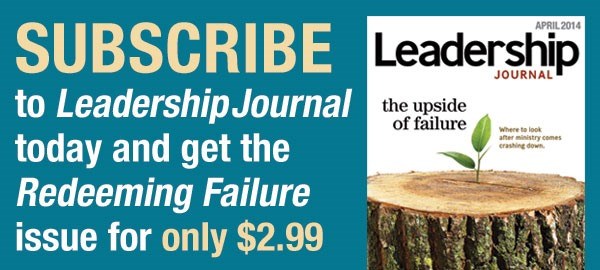The Upside of Failure Written By: Tim Eyre Comments Off on The Upside of Failure I didn’t think about this when I started my current job, but it turns out a lot of my success depends on my willingness to accept failure. The Upside of Failure 18 Comments / Featured Books & Authors / By Susan Mazza / 04 June 2013 04 June 2013 Today I’m sharing a guest post from author, Bill Treasurer. The moment happened in the blink of an eye with a five-word question. It was at that moment I asked the question I’d spent more than four years avoiding. “Tell me about the job?” As an entrepreneur, it’s the wrong question. It’s the question you never want to have to ask because it represents the failure of your business. It means going back to work for someone else, another company.
Failure can be good for you. This is not easy to read if a relationship has just ended or your business has just collapsed. And of course, it would be better if these things had not happened. But failure, from time to time, is inevitable and, depending on how we respond to it – it can have an upside. Here’s why.
Our brains have two primary mindsets that underpin our whole lives – one is called the approach mindset and the other the avoidance mindset. The approach mindset is linked to our brain’s reward network – the feel-good “pleasure centre” that switches on when we anticipate good things – success, sugar, sex – that are rewarding to us. This is the go-getting, forward-looking, goal-seeking, reward-relishing circuit of the brain that is closely linked to the brain’s chemical messenger dopamine [1].


The avoidance network, on the other hand is linked to our fear of punishment – of foreseeing risk and bad things happening. It is linked to the fight or flight chemical messenger of the brain, noradrenaline/norepinephrine. To get through life, these two circuits have to be in approximate balance – too much reward seeking and we become blind to risk and can end up crashing spectacularly, as happened in the financial crisis of 2007/8.
Most of the time, for most people, they are in rough balance, which is how the brain likes it, because these two circuits are in competition with each other in the brain – they inhibit each other and in a healthy situation, you get an amiable peace treaty between the two.
But when we fail, the avoidance network gets a boost and the approach network a beating. And when it has the upper hand, the avoidance network not only makes us more anxious and lower in mood, it also makes us more likely to remember past failures and past bad times, and makes it harder for us to anticipate future good times.
But there can be some hidden blessings for you in this state of avoidance and failure which you can harness if you let yourself. Here are some of them:
- Self-awareness is increased when the avoidance network is dominant. Failure can make us reflective and insightful in a way that can really foster future personal growth and also helps us learn from our mistakes.
- Empathy receives a boost with failure – and this can endear you to friends and colleagues. Too much success can make people big-headed and unpopular while failure can help forge bonds with people who could be your allies for future success.
- Creativity can be boosted when our happy headlong success treadmill is switched off. Success narrows attention and so can put creative blinkers on us, while failure broadens attention and can open up possibilities we never thought of.
- Norbury, A., et al., Dopamine regulates approach-avoidance in human sensation-seeking. International Journal of Neuropsychopharmacology, 2015: p. pyv041.
I didn’t think about this when I started my current job, but it turns out a lot of my success depends on my willingness to accept failure. In fact, you probably aren’t going to encounter true success if you aren’t brave enough to stare failure in the teeth, invite it in for a cup of coffee and acknowledge its presence in your life.
We learned as children to fear failure; who has not wanted to eradicate that sad look in a parent’s or teacher’s eyes when we do not meet their expectations? But to be successful, we have to move beyond those childhood fears.
Every failure leaves a scar as well as a lesson. They expand our perspective. I envision a fallen skier in the snow, face to the sky. It opens our eyes to look at the world from this angle.
Risk and reward
No one succeeds without taking risks. Should I expand to another city? Is it worth my time to attend yet another symposium? When is the best time to expand my staff?
Rarely are the answers to these questions crystal clear. Indeed, many of us debate them internally or with colleagues, arguing both sides and evaluating all the contingencies.
And yet it may not be enough. Some risks will pay off and others won’t. The fault may be ours or it may not. We could not anticipate that tsunami, that political scandal, the death of a good customer. Things always happen that are outside our control. The question is, what do we do next?
Embracing failure
Some years ago, a young writer grew discouraged at the number of rejection slips he was receiving. He felt like a failure and wondered if he was wasting his time trying to write for a living. As he added the latest letters to the bulging file in his attic-turned-office, he stared at the peaked ceiling. On the spur of the moment, he decided to take the letters out of the file, where they mocked him on a daily basis, and display them by tacking them to the bare walls and ceiling. Highly visible, the letters became a spur. As he looked around and saw plenty of open space remaining, he determined to fill that space as quickly as he could. As a result, he sent out even more query letters. Although he didn’t see it at the time, what he was doing was embracing the chaos of failure and taking valuable steps toward success. By increasing the number of pitches he made to editors, he increased his odds, and soon a few acceptance letters turned up in the mail. He even sold a piece about his wall of rejection to a writing magazine!
Better safe than…
I’d never deny the importance of safety. No way would I jump out of an airplane without a working parachute! But sometimes “safety” becomes an end in itself. It’s certainly true that playing it safe cuts down on the chance of failure. But it also reduces the chance of success! If you never take that risk, you’ll get stuck. In fact, you’re likely to fall behind your competitors who didn’t stay hunkered down in the bunker. We need to redefine “failure” so it’s not a measure of personal inadequacy but a necessary step on the road to success. Indeed, it would be hard to recognize success unless you had tried other methods and found them lacking.
That’s entertainment!
People in the entertainment industry know a lot about what we call failure. The odds are against them from Day 1.
- They go to many auditions without landing a role.
- They work at dead-end jobs while they wait for their big break.
- There are always younger talents trying to replace them.
So, they have something to teach us all about perseverance and success.
“You can’t have any successes unless you can accept failure.” That’s famed director George Cukor’s take on the subject. Nothing exists in a vacuum. It’s a conundrum: if you take more risks, you will experience more failures. But you will also experience more success. The sooner you understand that, the more likely you are to save yourself a lot of grief. Mickey Rooney was more colloquial: “You always pass failure on your way to success,” he said. I think about that on a tough day. Today’s difficulties, today’s failures … I leave them on the road and I keep going.
Keep your eyes open.
Some failures are in fact brilliant successes. The sticky note, super glue and even penicillin would not be around if some brilliant scientists hadn’t “failed.” All the more reason not to define failure as a flaw. And how much sweeter the success when we have learned not to be derailed by failure.

The Upside Of Failure Nursing Diagnosis
———————————————————————————–

